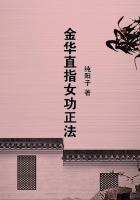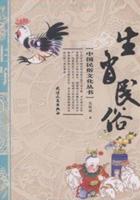THE FACULTY AND THEIR METHODS
I.
At Wellesley, to a degree unusual in American colleges, whether for men or women, the faculty determine the general policy of the college. The president, as chairman of the Academic Council, is in a very real and democratic sense the representative of the faculty, not the ruler. In Miss Freeman's day, the excellent presidential habit of consulting with the heads of departments was formed, and many of the changes instituted by the young president were suggested and formulated by her older colleagues. In Miss Shafer's day, habit had become precedent, and she would be the first to point out that the "new curriculum" which will always be associated with her name, was really the achievement of the Academic Council and the departments, working through patient years to adjust, develop, and balance the minutest details in their composite plan.
The initiative on the part of the faculty has been exerted chiefly along academic lines, but in some instances it has necessitated important emendations of the statutes; and that the trustees were willing to alter the statutes on the request of the faculty would indicate the friendly confidence felt toward the innovators.
In the statutes of Wellesley College, as printed in 1885, we read that "The College was founded for the glory of God and the service of the Lord Jesus Christ, in and by the education and culture of women.
"In order to the attainment of these ends, it is required that every Trustee, Teacher, and Officer, shall be a member of an Evangelical church, and that the study of the Holy Scriptures shall be pursued by every student throughout the entire College course under the direction of the Faculty."
In the early nineties, pressure from members of the faculty, themselves members of Evangelical churches, induced the trustees to alter the religious requirement for teachers; and the reorganization of the Department of Bible Study a few years later resulted in a drastic change in the requirements for students.
As printed in 1898, the statutes read, "To realize this design it is required that every Trustee shall be a member in good standing of some Evangelical Church; that every teacher shall be of decided Christian character and influence, and in manifest sympathy with the religious spirit and aim with which the College was founded; and that the study of the Sacred Scriptures by every student shall extend over the first three years, with opportunities for elective studies in the same during the fourth year."
But it was found that freshmen were not mature enough to study to the best advantage the new courses in Biblical Criticism, and the statutes as printed in 1912 record still another amendment:
"And that the study of the Sacred Scriptures by every student shall extend over the second and third years, with opportunities for elective studies in the same during the fourth year."
These changes are the more pleasantly significant, since all actual power, at Wellesley as at most other colleges, resides with the trustees if they choose to use it. They "have control of the college and all its property, and of the investment and appropriation of its funds, in conformity with the design of its establishment and with the act of incorporation." They have "power to make and execute such statutes and rules as they may consider needful for the best administration of their trust, to appoint committees from their own number, or of those not otherwise connected with the college, and to prescribe their duties and powers." It is theirs to appoint "all officers of government or instruction and all employees needed for the administration of the institution whose appointment is not otherwise provided for." They determine the duties and salaries of officers and employees and may remove, either with or without notice, any person whom they have appointed.
In being governed undemocratically from without by a self-perpetuating body of directors, Wellesley is of course no worse off than the majority of American colleges. But that a form of college government so patently and unreasonably autocratic should have generated so little friction during forty years, speaks volumes for the broadmindedness, the generous tolerance, and the Christian self-control of both faculty and trustees. If, in matters financial, the trustees have been sometimes unwilling to consider the scruples of groups of individuals on the faculty, along lines of economic morals, they have nevertheless taken no official steps to suppress the expression of such scruples. They have withstood any reactionary pressure from individuals of their board, and have always allowed the faculty entire academic freedom. In matters pertaining to the college classes, they are usually content to ratify the appointments on the faculty, and approve the alterations in the curriculum presented to them by the president of the college; and the president, in turn, leaves the professors and their associates remarkably free to choose and regulate the personnel and the courses in the departments.
In this happy condition of affairs, the alumnae trustees undoubtedly play a mediating part, for they understand the college from within as no clergyman, financier, philanthropist,--no graduate of a man's college--can hope to, be he never so enthusiastic and well-meaning in the cause of woman's education. But so long as the faculty are excluded from direct representation on the board, the situation will continue to be anomalous. For it is not too sweeping to assert that Wellesley's development and academic standing are due to the cooperative wisdom and devoted scholarship of her faculty. The initiative has been theirs. They have proved that a college for women can be successfully taught and administered by women. To them Wellesley owes her academic status.















